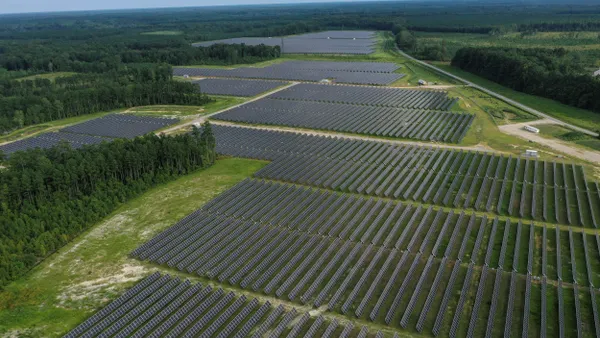Dive Brief:
- A hearing officer at the New Mexico Public Regulation Commission (PRC) recommended nixing a "standby fee" charged to solar customers in the eastern part of the state after concluding the utility used shoddy data to justify an increase.
- The study relied on by Southwestern Public Service Co. (SPS) to justify increasing the cost of certain ancillary and standby services is "riddled with errors and unreliable," wrote Carolyn Glick, a hearing officer at the PRC.
- SPS had requested to increase the fee by more than 11% according to the Santa Fe New Mexican. It currently averages $28/month and solar advocates say it's hindering development of the state's residential solar market.
Dive Insight:
While the PRC commissioners must still take up the proposed decision, the recommendation is a victory for solar advocates who say the charges are stunting renewables growth in New Mexico.
The standby charge issue is part of a more complex rate case, where Xcel subsidiary SPS requested to raise rates for retail New Mexico customer by about 12.5%. Glick is recommending about a 5% increase, including eliminating the standby charge for solar customers.
The proposal to eliminate the fee on rooftop solar customers, known as Rate 59, reflects the continued debate over how the costs and benefits of rooftop solar are assessed. Glick called the charge "flawed in several respects" and said it "should be canceled," laying out a trio of reasons the charges are "not evidence-based nor cost-based."
"SPS did not calculate the reasonably determinable benefits to its system provided by new interconnected customers," said Glick. And to boot, the charges SPS proposed didn't reflect the results of the study.
SPS used the National Renewable Energy Laboratory's PV Watts Calculator, a modeling tool that predicts solar performance by day and hour. But for a variety of reasons, the modeling consistently predicted less solar output than actual solar systems on the SPS grid were producing. Errors related to time zone calculations and the output of specific solar systems were listed as possible reasons.
Local media reports commissioners are expected to vote on SPS's rate case in September.














